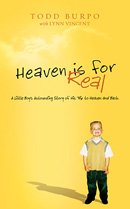BaptistWay Bible Series for March 18: Don’t preach to us about that
• Download a powerpoint resource for this lesson here.
Amos 7 and 8 comprise the fourth of Amos’ messages which emphasizes looming judgment. This message features Amos carrying out the ironic actions every minister experiences—interceding for people and then suffering antagonism from the same people.
Verses 7:1-6 record Amos’ intercession for his people. Twice God indicated the sending of harsh, all-consuming judgment. Twice Amos interceded, citing the frailty of the people. Twice God relented from all-encompassing judgment because his messenger prayed for the people. Similarly, Moses interceded for his people (Exodus 33:1-17; Numbers 14:11-23).
Verses 7-9 record Amos’ famous plumb line vision. Through this vision, God declared he would send judgment in the form of justice, not a merciless, all-consuming destruction.
As events would occur, the Israelites might have thought the locusts and fire had truly come, since their nation was destroyed completely along with many lives. But the difference in approach is important. God, who called Israel to act in justice, also follows the standards of justice. The plumb line provides that standard. The vision offers both justice and promise. Those who were found upright would be vindicated. Those who did not measure up to the plumb line would perish.
Verse 9 speaks of the Lord’s judgment of the northern kingdom’s religious system and his opposition to the ruling dynasty. Jeroboam II ruled from 786-746 B.C. during the years when the kingdom of Israel was at its greatest economic peak. Yet, within a mere 25-year span after his death, the northern kingdom rapidly declined and was destroyed by Assyria.
For Amos (and his contemporary prophets), the northern kingdom also was at the peak of its spiritual apostasy (illustrated by the ripe fruit in chapter 8). Desperate times called for strong measures. Amos delivered an attention-grabbing message to which Amaziah, “the priest” (7:10), was forced to respond.
Amaziah possibly was the top religious leader in Bethel. His name means “the Lord is mighty,” here prophetically testifying to the Lord’s strength to bring judgment against his wayward people. Tragically, Amaziah was disconnected from the Lord and uninformed regarding Amos’ message. Like the religious leaders in Jesus’ day, Amaziah was found opposing the Lord’s purposes. His resistance to Amos earned him individual attention in the coming judgment. The troubles visited upon Amaziah and his family would be a sign of God’s judgment and a verification of Amos’ prophetic assignment.
Amaziah’s report in verse 11 differs from Amos’ statement in verse 9. Amaziah selected key details to inflame the crown against Amos. In effect, Amaziah inadvertently serves a prophetic function, similar to the high priest Caiaphas stating about Jesus: “It would be good if one man died for the people” (John 18:14).
Without government help, Amaziah commanded Amos to leave Bethel. Amos responded that God called him to prophesy. He was an unlikely choice, being a southern sheepherder and tree dresser and having no religious vocational experience. The contrast between Amos and Amaziah underscores that God could not rely upon Amaziah for this task.
Judgment would befall Amaziah. The destinies awaiting his wife and children had personal implications for them, but they were expressed in ways that were most injurious to Amaziah. The priest himself survived among the Israelite exiles with haunting memories of the stiff price he paid for leading God’s people astray.
Chapter 8 opens with a third vision. Amos saw a basket of ripe fruit. Often spiritual visions used symbolism to emphasize a point. Here, the vision declared the time ripe for judgment. Verse 3 prophesies weeping will dominate temple worship. Such weeping will be caused by God’s judgment against Israel’s lack of justice.
Verse 4 characterizes this tragedy: needy people’s lives are trampled. Verse 5 asserts dishonesty in the marketplace as one way needy people were trampled. Verse 6 states the pursuit of profit was so extensive even threshing floor sweepings were sold for pittances instead of being given to the poor.
God’s justice soon will become so prominent in Israel (vv. 8-10) that her religious festivals will be dominated by mourning and weeping. Joy is to be the dominant expression in the worship of the Lord (see Nehemiah 8:10; Psalm 33:1; 66:1; 71:23; 95:1; and many more). But the Lord was missing from Israel’s festivals and he would make his absence apparent through the dominance expressions of heartbreak over the repeated loss of loved ones.
Moreover, the Lord will send a famine of his word. God’s word comes to people in a variety of ways: quotations in worship, its proclamation in the temple, the teaching of the priests, the preaching of the prophets, in the repetition and meditations of the people, etc. These elements were replaced in Israel’s newer religious system.
Now the people hunger for God’s word during years of hard famine, but few realize it. Verses 13-14 illustrate why: the young people, who follow the patterns established by prior generations, blindly and insistently call upon the ineffective and lifeless idols Israel adopted. They know no better because they have not been taught about the Lord.
Words of confrontation and judgment are not pleasant. Nevertheless, God’s true followers remain faithful even when confronted by an unpleasant message (see John 6:68-69). God extends mercy amid judgment (Amos 5:6). Great, then, is the tragedy for those who, having no interest in God, refuse his mercy and insist on pursuing an existence that will soon perish.





